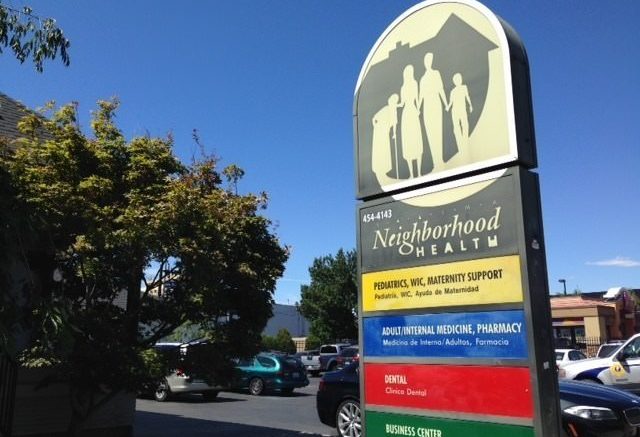Under a settlement agreement reached this week, Yakima Neighborhood Health Services will drop its federal lawsuit against the city of Yakima and instead submit a new application for using Roy’s Market as an apartment building to house local homeless people.
The revised application, which Neighborhood Health must submit within 90 days, will be for an apartment facility in which up to 40 homeless people could stay for 30 days to two years — not for a temporary shelter.
“We’ve agreed the facility will not be designed as a place of temporary sojourn, a mission or a warming shelter,” said Rich Hill, Neighborhood Health’s attorney in the lawsuit, which was filed in Superior Court in February and moved to federal district court in March.
The settlement is a “positive step,” Hill said. “Neighborhood Health is excited to work with the city on obtaining approval for the proposal,” he said.
The pressing issue of where to house Yakima’s homeless population has been in contention since the fall of 2014, when Neighborhood Health expressed interest in installing an emergency homeless shelter in the Roy’s Market site — to which the city responded by passing an emergency moratorium on new homeless shelters in “Small Convenience Center” (SCC) zones in Yakima.
Though a city hearing examiner agreed with Neighborhood Health’s proposal, which included other social services besides the emergency shelter, the city appealed and ultimately denied the application. Neighborhood Health then sued the city in Superior Court to overturn the land-use decision; that suit remains on hold pending the outcome of the new application process.
The separate federal-court suit dealt with Neighborhood Health’s allegations of Fair Housing Act violations and discrimination by the city in making certain zones off-limits for homeless shelters.
Resolving that lawsuit rather than continuing to push it through the court system was in both parties’ interest, said Ken Harper, the city’s attorney on the case.
“The litigation process is full of cost; it’s full of risk,” Harper said Wednesday. “Over the summer, as we had discussions in and outside the litigation setting, it became obvious that there was an opportunity to resolve this outside of litigation.”
In starting over with the application process, Harper said, the city and Neighborhood Health will be able to present the idea to the community and get input as they move forward.
Once Neighborhood Health submits its application to Community Development director Joan Davenport, there will be a public hearing for community members to voice questions or concerns.
Davenport may then refer the proposal to a hearing examiner. There also is a chance that the hearing examiner’s decision could be appealed to the City Council, Hill said.
City spokesman Randy Beehler said although Neighborhood Health’s new proposal is a generally accepted use for SCC zones, it is anticipated to go through a hearing examiner.
There is no guarantee the application will be approved, but Neighborhood Health is hopeful its revised proposal will satisfy neighborhood concerns.
“The agreement is really based on the fact that we have to get the homeless off the streets, and Roy’s would be transitional housing, from 30 days to two years,” said Don Hinman, Neighborhood Health board of directors chairman.
“The whole idea is to get (the homeless) into permanent housing and some form of self-sufficiency, and we’re committed to that, and that’s why we took so long to get this agreement with the city so we could do that,” Hinman said.
Rather than a shelter, the facility would be an apartment complex, likely with a variety of one- or two-bedroom units to accommodate families in need of housing.
Neighborhood Health would be the landlord, and the individuals would be treated as normal tenants — likely with continued support and case-management services through Neighborhood Health programs.
“The tenant has to behave themselves or they can’t stay in the unit,” Hinman said. “We’re not going to turn anybody away, but we’re not going to allow any disruptive behavior, either.”
As in the organization’s “master lease” program, whereby Neighborhood Health is securing and paying for units in private apartment buildings in Yakima, homeless individuals would be housed based on where they fall on the “vulnerability index,” with the most vulnerable receiving housing first.
Neighborhood Health will be seeking grants to turn the market site into an apartment building. As homeless issues have come to the forefront in the Legislature and in Congress, Hinman said, there may be grant funding available for projects such as this one.
The apartment building also would house a laundromat and a coffee shop or small cafe, both open to the public.
Hinman said this proposal is “not the silver bullet” to Yakima’s homeless issues, but is a big step forward.
“The homeless have been in that neighborhood for years, and so we just need to solve the problem,” he said.
Source: www.seattletimes.com





Be the first to comment on "Lawsuit Settlement Could Mean Housing for Yakima’s Homeless"